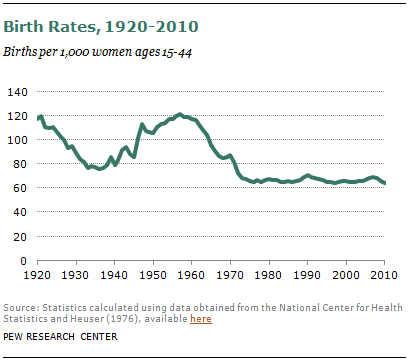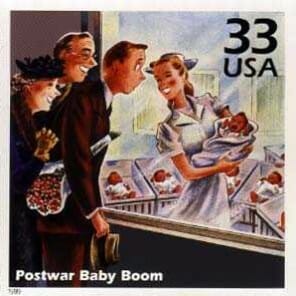Having worked in the long-term care and retirement industry for a number of years I must remind myself around clients not to use jargon and “Bad Words” (see previous blog). Equally important is not to assume that what I think is a mainstream term or concept isn’t necessarily so for the average consumer. This past weekend, my father-in-law heard me talking about baby boomers. He then posed the question. “Am I a baby boomer?” The correct answer is no, he is not. Today’s blog will explain why he’s not and will also shed some light on this label as well as explain why such labels exist. If you already know about baby boomers, read it anyway!
Dating back to over a hundred years to the present, historians and social scientists have assigned names to each generation spanning the century and then some. These classifications help sociologist and demographers create statistical and trending information that is vital to many aspects of life. Some state there are five distinct generations, others view more than five due to sub-categories. Either way, typically, the most quantitative characteristic of a particular generation is the year of birth. Most experts agree that if you were born between the years of 1946 and 1964 you are considered a baby boomer. That explains why my father-in-law who was born in 1933 is not considered a boomer. He would be considered part of the Greatest Generation or its subset the Silent Generation, which spans from 1925-1945. Additionally, like me, if you were born between 1965 and the late 70s, you’re part of Generation X. Generation Y includes those born from late 70s to the mid-90s, and lastly those born around the Millennium to the present are referred to as Generation Z. Generation Y and Z combined are referred to as Millennials.

So where did the name “baby boomer” come from? Well, after World War II ended the number of births exploded creating this “boom” in the U.S. population. Some historians say that it was a way for us regain normalcy after 16 years of the Great Depression and WWII. Others have argued that it was a part of a Cold War campaign to fight communism by simply outnumbering communists. Whatever the reason, the leading edge of baby boomers turned 65 in 2011 and the total number of boomers will reach between an estimated 75-78million. According to the US Census Bureau, an American turns 50 every 7 seconds—that’s more than 12,500 people every day. Boomers make up 35% of the American adult population (Scarborough). By 2015, those aged 50 and older will represent 45% of the U.S. population (AARP). Currently they also represent the vast majority of the U.S. work force, and because they are at their peak earning and spending years, their volume and impact greatly influences much of our economy and society as a whole. Boomers have helped shape a very different world than their parents were accustomed to and will affect many generations to come. Some famous boomers include Bill Gates, Barack Obama and Oprah Winfrey. While boomers have contributed so much to our society, it’s been stated that they will also put a huge strain on the country’s healthcare and retirement system as well as actual caregivers. There may not be enough caregivers to go around!
Lastly, boomers are different from their parents and, as they progressively age, they will collectively have a stronger voice than any other generation before them and possibly after them. From the radical 1960s to the technology boom of the millennium, boomers have played a major role in the evolution of our country. Likewise, their brand and view of aging will compel their peers as well as generations X, Y, and Z to redefine aging, what it means to grow older, and to re-imagine the journey of aging. Sound familiar?
Whether you’re a baby boomer or not, please share how you think aging, retirement and healthcare will look different once all 75+ million boomers reach 65 years of age.





